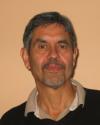Spring 2020
Meeting:
TTh 2:30pm - 4:20pm / MOR 234
SLN:
13870
Section Type:
Lecture
Instructor:
ADD CODES REQUIRED AFTER APRIL 3,
2020
Catalog Description:
Provides an introduction to contemporary literary, cultural, and critical theory and modern antecedents. Explores frameworks used in study of literature and culture by scholars today.
GE Requirements Met:
Arts and Humanities (A&H)
Credits:
5.0
Status:
Active
Last updated:
August 22, 2025 - 5:19 am
